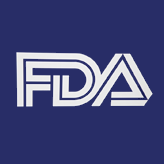Pembrolizumab Gets New Indications in Advanced Cancer
The FDA has granted approval to pembrolizumab (Keytruda) in the first- and second-line settings for the treatment of patients with locally advanced or metastatic urothelial carcinoma.
Pembrolizumab was approved in the first- and second-line settings

The US Food and Drug Administration (FDA) has granted pembrolizumab (Keytruda) regular approval for the second-line treatment of locally advanced or metastatic urothelial carcinoma patients whose disease has progressed during or after platinum-containing chemotherapy, either in the neoadjuvant or adjuvant setting, as well as accelerated approval for the first-line treatment of cisplatin-ineligible patients.
“Keytruda is now available for use as a first-line treatment option for patients with advanced urothelial bladder cancer who are not eligible for the standard of care, cisplatin-based chemotherapy,” said study investigator Dean F. Bajorin, MD, medical oncologist at Memorial Sloan Kettering Cancer Center in New York, in a press release. “With the second-line indication, Keytruda also provides a new option for patients with advanced urothelial bladder cancer-and is the only anti–PD-1 therapy to show an overall survival benefit vs chemotherapy in a phase III study.”
Results from the multicenter KEYNOTE-045 trial led to the pembrolizumab approval in the second-line setting. The trial randomized 542 patients with locally advanced or metastatic urothelial carcinoma, whose disease had progressed on or after platinum-containing chemotherapy, to either pembrolizumab or chemotherapy. Every 3 weeks, patients received either 200-mg pembrolizumab (n = 270) or investigator’s choice of chemotherapy (n = 272; 75-mg/m2 docetaxel, 175-mg/m2 paclitaxel, or 320-mg/m2 vinflunine).
Patients on pembrolizumab had an improved overall response rate (21% vs 11%; P = .002). Median overall survival was also improved with pembrolizumab, at 10.3 months vs 7.4 months in those on chemotherapy for a hazard ratio (HR) of 0.73 (95% CI, 0.59–0.91; P = .004).
Results from the KEYNOTE-052 trial led to the pembrolizumab approval in the first-line setting. This open-label trial included 370 cisplatin-ineligible patients with locally advanced or metastatic urothelial carcinoma. Pembrolizumab was administered every 3 weeks at a 200-mg dose in all patients. Overall response rate was 28.6% (95% CI, 24%–34%) with a median follow-up of 7.8 months; the median response duration was not reached (1.4–17.8 months).
Adverse events (AEs) led to treatment discontinuation in 8% of patients In KEYNOTE-045 and 11% of patients in KEYNOTE-052, with pneumonitis (1.9%) being the most common reason. AEs led to treatment interruption in 20% of patients, with diarrhea and urinary tract infection (1.5% each) and colitis (1.1%) being the most common reasons.
The most common AEs (20% or greater) in pembrolizumab-treated vs chemotherapy-treated patients were decreased appetite (21% vs 21%), fatigue (38% vs 56%), musculoskeletal pain (32% vs 27%), nausea (21% vs 29%), pruritus (23% vs 6%), and rash (20% vs 13%). Serious AEs occurred in 39% of pembrolizumab-treated patients, with anemia, pneumonia, pneumonitis, and urinary tract infection being the most common (all 2% or greater).